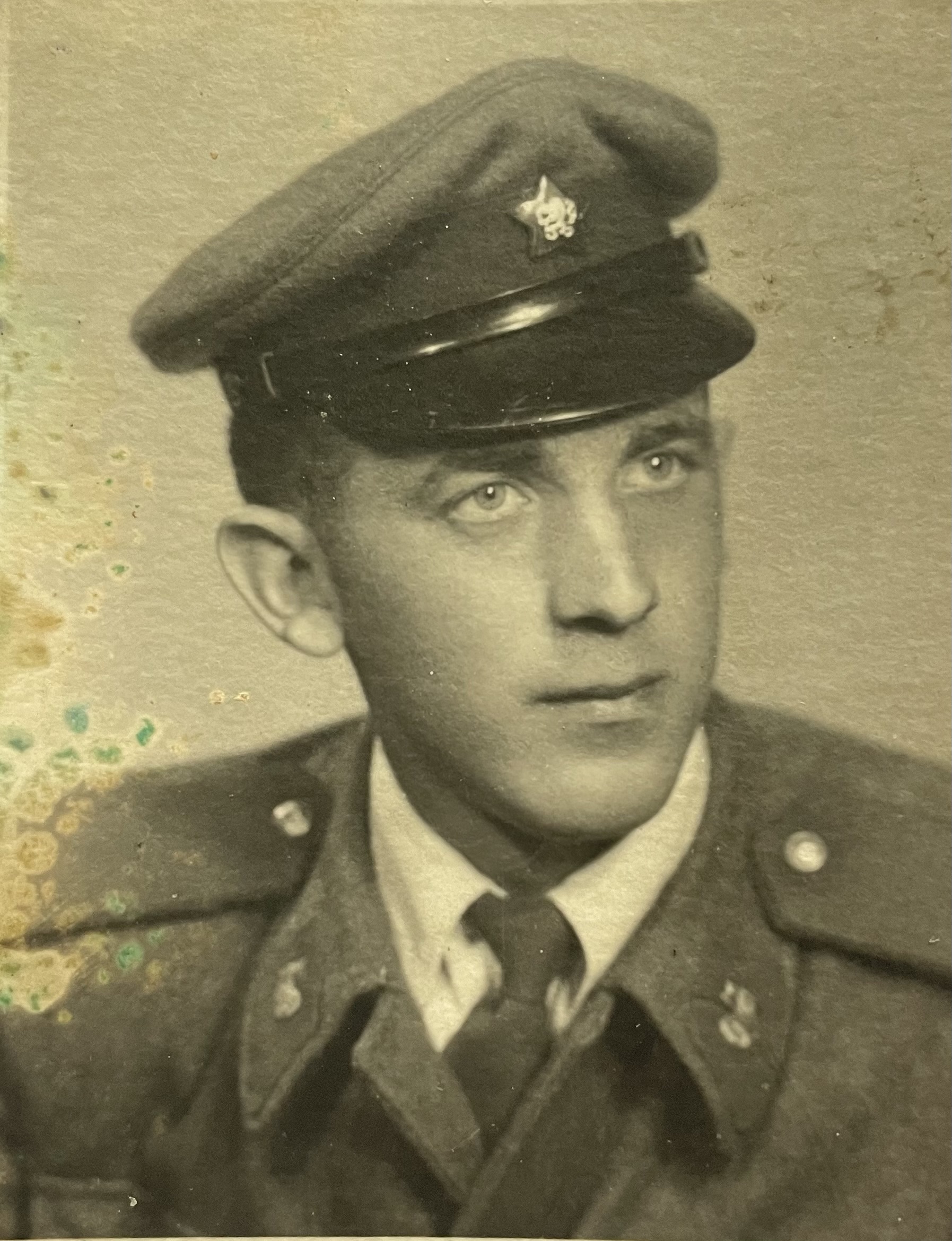First they came to liberate, then they devoured us

Download image
Ladislav Uko was born on July 23, 1938 in the village of Grúň in Bošácká dolina as the first of three sons of Pavlo and Emília. As a child, he remembers from World War II the downing of an American plane near their settlement. During the liberation of our territory, their house was damaged by a German mine and they had to flee to their neighbors. He remembers the heavy fighting near Veľký Lopeník, when the Germans were retreating towards Moravia. Soviet soldiers lived in their house, the household had to dig bunkers in the mountains and bring them food. They killed their livestock and destroyed their house. After the war, the family had to pay high contingents. In August 1968, occupying troops came to Bošácká dolina and were looking for a “revolution”. A soldier who fought under Veľký Lopeník as a 19-year-old came to visit them. They had to hand over 12 hectares of land to the cooperative and he got a job as a technician in forestry melioration. After the revolution, they asked for the return of the land and started farming on their own again. Today retired, he and his wife Matilda have raised two sons and a daughter, they still live in Grúň.






